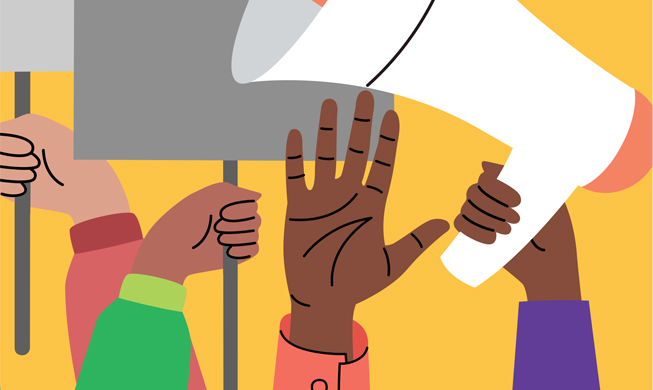
The COVID-19 pandemic has had enormous impact in Canada and around the world. Globally, over a million people have tragically lost their lives to the illness. The pandemic has also had powerful economic consequences and securing the future of Canada’s economy is now top of mind for Canadian residents — whether they have lost their job, shuttered their business or are serving as frontline workers in essential services.
2020 marked the 25th anniversary of the Beijing Declaration and Platform for Action, the most comprehensive set of globally agreed-upon recommendations to advance gender equality. What might have been the moment to reflect on how far we have come as an international community may be seen as the year that the gains to advance gender equality over the last few decades unravelled. Without attention to inequity in post-pandemic recovery, a potential decline in our achievements is a real threat, given the gendered economic, health and social impacts of the pandemic across all aspects of society.
A paradigm shift is afoot. A broader range of people across Canada are now seeing the importance of feminized and racialized labour for our health and well-being — where women, especially women of colour and recent immigrants, are leading the response to a major health crisis and preventing further economic and social fallout. However, there was much that was not working before COVID-19. It took a pandemic for the country to see what was already broken. We cannot ignore the historical context that has created the unstable foundation for the harms we are seeing play out in this current crisis.
In the past few decades, Canada has made major strides towards a more gender-inclusive workforce — with cis women, trans women, non-binary, Two-Spirit and gender-diverse people gaining greater access to employment and advancement. But systemic barriers still exist — and the first phase of the pandemic’s economic downturn has shown that gender inequities are influencing who is bearing the brunt of the pandemic’s effects.
What lies before us is an opportunity to reimagine our future — a future that disrupts the thinking about who counts in our economy. The pandemic has revealed who is truly essential and the degree to which the caring economy — both paid and unpaid — underpins our entire economic system. After all, our Canadian public healthcare system materialized from the Great Depression and World Wars. Advocates for human rights and social justice recognized, as did the broader public, that building a strong safety net protects us all.
As Canada rebuilds, we can realign the economy around equity for all Canadians. The proposals in our report — “A Feminist Economic Recovery Plan for Canada: Making the Economy Work for Everyone” — offer an intersectional perspective on how we can recover from this crisis and weather difficult times ahead, while ensuring the needs of all people in Canada are considered in the formation of policy.
To truly create an economy that works for everyone, actions that resist, counteract and dismantle sexism, anti-Black racism, anti-Indigenous colonial racism, anti-Semitism, bigotry, biphobia, colonialism, queerphobia, homophobia, Islamophobia, misogyny, patriarchy, transphobia, xenophobia, and hate and discrimination in all its forms will be essential.
As organizations strive to be anti-racist, anti-oppressive, feminist and progressive, they cannot ignore and must explicitly name that the foundations of this nation and the resultant economy were built on the backs of Indigenous, Black, and racialized communities; newcomer, immigrant, refugee and non-status workers; LGTBQ+ communities; people with disabilities; women, Two-Spirit and gender-diverse people and many other communities that experience marginalization and discrimination.
The eight pillars put forth in our report — one of which appears above — should not be considered as an exhaustive list, but rather as a starting point for action. Several other organizations are putting forward their own plans and policies to build back better. Our contributions should be viewed as complementary, additive and mutually reinforcing to those many ongoing efforts within Canada and around the world.
However, we see these eight steps as non-negotiable if Canada hopes to generate future prosperity. An unwavering focus on creating a more inclusive economy is essential not only to aid the recovery from the impacts of the COVID-19 pandemic, but to ensure well-being for decades to come. Societies will be increasingly challenged by the cascading impacts of a phenomenon that will transform large economies in the world: population aging. Simply put, we need to ‘build back better’ by tackling systemic inequalities. Inclusion must extend to both inputs and
outcomes. Going forward, inclusion must be the metric when asking for contributions or distributing benefits to achieve societal goals. 
Sarah Kaplan is Director of the Institute for Gender and the Economy (GATE), Distinguished Professor of Gender and the Economy and Professor of Strategic Management at the Rotman School of Management. She is the author of
The 360-Degree Corporation: From Stakeholder Trade-Offs to Transformation (Stanford Business Books, 2019).
Maya Roy is CEO of YWCA Canada. “A Feminist Economic Recovery Plan for Canada: Making the Economy Work for Everyone” was co-published by YWCA Canada and the Institute for Gender and the Economy. The full report is available online.
This article appeared in the Winter 2021 issue. Published by the University of Toronto’s Rotman School of Management, Rotman Management explores themes of interest to leaders, innovators and entrepreneurs.
Share this article: